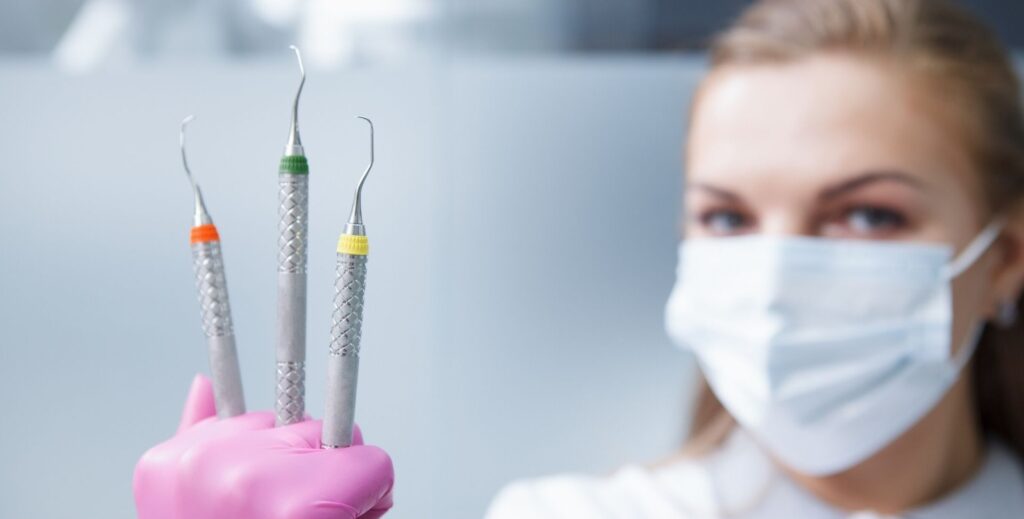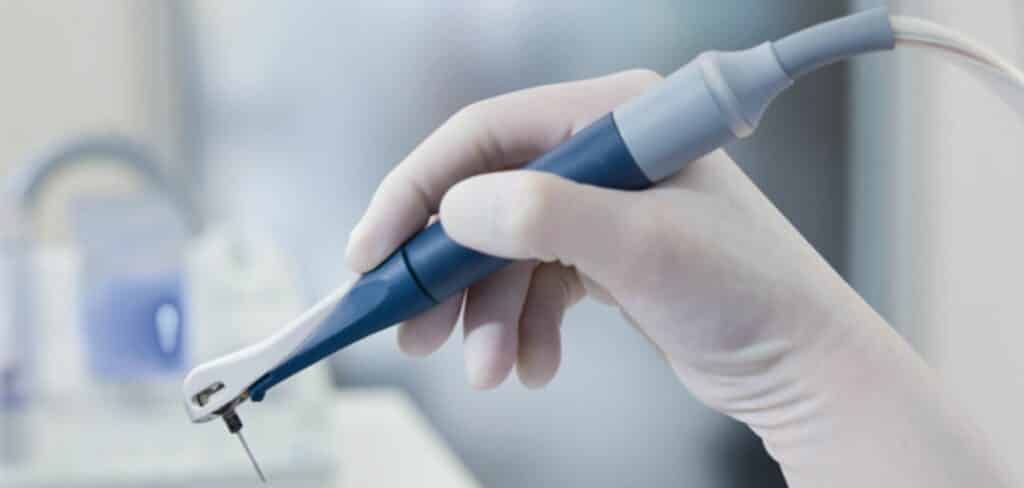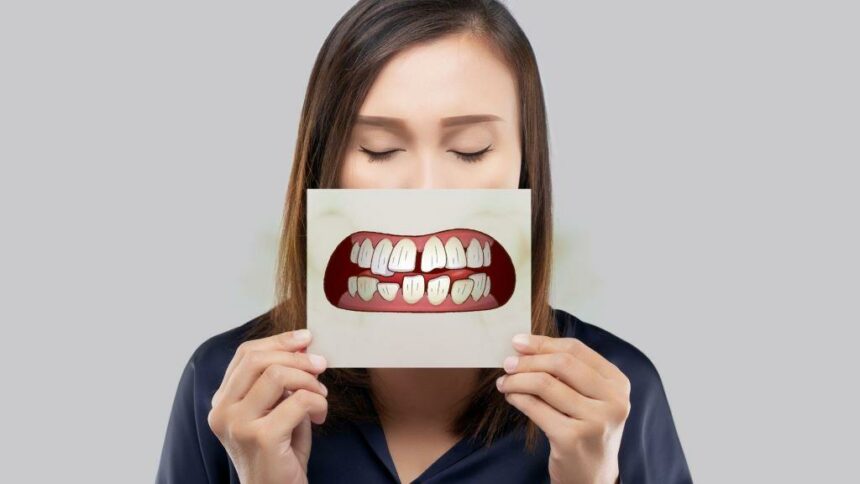Periodontitis, or periodontitis, affects as many as 70% Poles. It is one of the most common diseases affecting the teeth and gums - only tooth decay is more common. Find out if it affects you too, what its symptoms and causes are, and what periodontitis treatment in the UK might look like. This is extremely important, as neglecting it can result in tooth loss.
What is periodontitis and what are its causes?
Periodontitis is an inflammation of the periodontium, i.e. the tissues surrounding the teeth. If left untreated, it can even lead to tooth loss. It most often appears after the age of 40, but is also diagnosed in many 30-year-olds. In its initial stage, it is often underestimated because we consider the symptoms to be harmless.
However, if someone in your family has suffered from periodontitis, and you have any of its symptoms, you should go to the dentist as soon as possible. For the influence of genetics is not insignificant here - it is a hereditary disease. You can read more about the influence of genes on your teeth in the post "Grandma's smile, or how genes affect teeth„.
Paradontosis is often the result of poor oral hygiene. It is important to brush your teeth regularly and remove plaque and plaque from your teeth. Not only from the teeth, but also from the spaces between the teeth. This is why you should floss your teeth, which unfortunately most people do not do. You can read more about flossing in our article "How to floss your teeth and why it's so important„.
Plaque build-up on the surface of the teeth, If it is not cleaned regularly, it turns into tartar, which can lead to inflammation. Unremoved tartar also accumulates under the gums, which contributes significantly to the development of periodontitis. Therefore, it is advisable to have dental hygiene at least once a year, which you will read about in the entry "Dental hygiene in the UK - scaling, tooth sandblasting, polishing and fluoridation„.

Symptoms - or how to recognise the disease
One of the first and also most underestimated symptoms of periodontitis is bleeding gums. We often blame it on too hard a toothbrush or too intensive brushing. Meanwhile, this symptom may be indicative of many diseases, not only those related to teeth. You will find out what it is about in this post: "Bleeding gums - causes and treatment„.
Another also early and underestimated symptom is a stale Mouth odour. Have you ever had someone draw attention to your breath a few times, even though you brush your teeth a minimum of twice a day? Check it out - don't camouflage the smell with chewing gums and mouthwashes.
At a more advanced stage, there is a Exposure of dental necks and elongation of the teeth. The teeth then become loosened. If you don't react even at this stage, it is likely that the teeth will simply fall out. Just don't think this will solve your problem - the inflammation will not go away on its own, it needs to be treated.

What are the consequences of periodontitis?
The consequences of untreated periodontitis can be many. Tooth loosening can lead to problems with eating - you may need to eat only soft foods. There may also be problems with speaking - there may be a seplenia as a result of the teeth loosening and forming between them crevices.
Also, the appearance of the teeth of a person with untreated periodontitis can be a very unpleasant consequence. Gums with inflammation are severely reddened, teeth are elongated, gaps develop between them and can even fall out completely.
It should not be forgotten that untreated periodontitis can lead to a number of diseases unrelated to the oral cavity. Among other things, periodontitis can cause cardiovascular diseases, as well as complications in pregnancy.

Periodontitis treatment in the UK
In the early stages of periodontitis, treatment will mainly consist of frequent plaque and tartar removal, as well as protecting your teeth from plaque build-up - i.e. scaling, sandblasting and varnishing. In our office, you will also be instructed on how you should take care of your oral hygiene, how to brush your teeth and which toothbrush to choose.
However, this is not all that our dental practice offers. We also use state-of-the-art equipment in the treatment of periodontitis -. Vector Paro Pro. With its help, we can remove supragingival plaque and tartar, as well as subgingival plaque that builds up in gingival pockets.
The Vector Paro Pro uses ultrasound rather than vibration to do this, so periodontitis treatment in the UK can be painless and comfortable. You can read more about the use of this equipment for periodontitis in the article "Modern periodontitis treatment in the UK with Vector Paro Pro„.
Another option is transplantation. In this situation, a fragment is taken palate or gum, which then covers the exposed tooth root. However, your dentist will inform you of the options that will work best in your case. We wrote more about this in our article "Surgical coverage of gingival recession„.
If you are concerned about the cost, don't cancel your treatment,. Our practice offers to spread your payment if the cost exceeds £350, with an interest rate of 0% for the first 12 months. Our scheme is fully secure and authorised by the Financial Conduct Authority (FCA number 619628).
Remember also that the earlier you go to the dentist, the lower the costs will be. You will also save a lot of time and pain.

